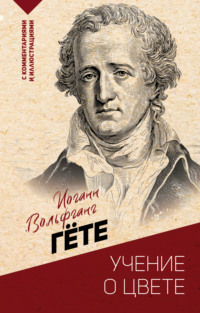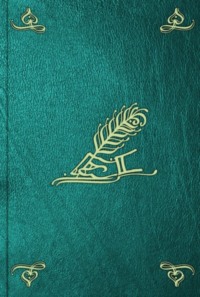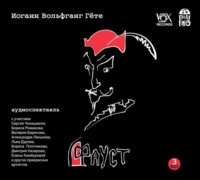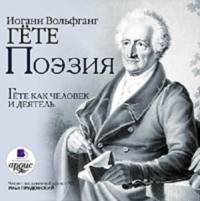 полная версия
полная версияLetters from Switzerland and Travels in Italy
And now I must ask you to congratulate me with regard to theatrical matters. Next week seven theatres will be opened. Anfossi himself is here, and will act "Alexander in India." A Cyrus also will be represented, and the "Taking of Troy" as a ballet. That assuredly must be something for the children!
Rome, Jan. 10, 1787.
Here, then, comes the "child of sorrows," for this surname is due to "Iphigenia" in more than one sense. On the occasion of my reading it out to our artists, I put a mark against several lines, some of which I have in my opinion improved, but others I have allowed to stand – perhaps Herder will cross a few of them with his pen.
The true cause of my having for many years preferred prose for my works, is the great uncertainty in which our prosody fluctuates, in consequence of which many of my judicious, learned friends and fellow artists have left many things to taste, a course, however, which was little favourable to the establishing of any certain standard.
I should never have attempted to translate "Iphigenia" into iambics, had not Moritz's prosody shone upon me like a star of light. My conversation with its author, especially during his confinement from his accident, has still more enlightened me on the subject, and I would recommend my friends to think favourably of it.
It is somewhat singular, that in our language we have but very few syllables which are decidedly long or short. With all the others, one proceeds as taste or caprice may dictate. Now Moritz, after much thought, has hit upon the idea that there is a certain order of rank among our syllables, and that the one which in sense is more emphatic is long as compared with the less significant, and makes the latter short, but on the other hand, it does in its turn become short, whenever it comes into the neighbourhood of another which possesses greater weight and emphasis than itself. Here, then, is at least a rule to go by: and even though it does not decide the whole matter, still it opens out a path by which one may hope to get a little further. I have often allowed myself to be influenced by these rules, and generally have found my ear agreeing with them.
As I formerly spoke of a public reading, I must quietly tell you how it passed off. These young men accustomed to those earlier vehement and impetuous pieces, expected something after the fashion of Berlichingen, and could not so well make out the calm movement of "Iphigenia," and yet the nobler and purer passages did not fail of effect, Tischbein, who also could hardly reconcile himself to this entire absence of passion, produced a pretty illustration or symbol of the work. He illustrated it by a sacrifice, of which the smoke, borne down by a light breeze, descends to the earth, while the freer flame strives to ascend on high. The drawing was very pretty and significant. I have the sketch still by me. And thus the work, which I thought to despatch in no time, has employed, hindered, occupied, and tortured me a full quarter of a year. This is not the first time that I have made an important task a mere by-work; but we will on that subject no longer indulge in fancies and disputes.
I inclose a beautiful cameo, – a lion with a gad-fly buzzing at his nose; this seems to have been a favourite subject with the ancients, for they have repeated it very often. I should like you from this time forward to seal your letters with it, in order that through this (little) trifle an echo of art may, as it were, reverberate from you to me.
Rome, Jan. 13, 1787.
How much have I to say each day, and how sadly am I prevented, either by amusement or occupation, from committing to paper a single sage remark! And then again, the fine days when it is better to be anywhere rather than in one's room, which, without stove or chimney, receive us only to sleep or to discomfort! Some of the incidents of the last week, however, must not be left unrecorded.
In the Palace Giustiniani there is a Minerva, which claims my undivided homage. Winckelmann scarcely mentions it, and, at any rate, not in the right place; and I feel myself quite unworthy to say anything about it. As we contemplated the image, and stood gazing at it a long time, the wife of the keeper of the collection said – This must have once been a holy image; and the English, who happen to be of this religion, are still accustomed to pay worship to it by kissing this hand of it, (which in truth was quite white, while the rest of the statue was brownish). She further told us, that a lady of this religion had been there not long before, and, throwing herself on her knees before the statue, had regularly offered prayer to it; and I, she said, as a Christian, could not help smiling at so strange an action, and was obliged to run out of the room, lest I should burst out into a loud laugh before her face. As I was unwilling to move from the statue, she asked me if my beloved was at all like the statue that it charmed me so much. The good dame knew of nothing besides devotion or love; but of the pure admiration for a glorious piece of man's handiwork, – of a mere sympathetic veneration for the creation of the human intellect, she could form no idea. We rejoiced in that noble Englishwoman, and went away with a longing to turn our steps back again, and I shall certainly soon go once more thither. If my friends wish for a more particular description, let them read what Winckelmann says of the high style of art among the Greeks; unfortunately, however, he does not adduce this Minerva as an illustration. But if I do not greatly err, it is, nevertheless, of this high and severe style, since it passes into the beautiful, – it is, as it were, a bud that opens, – and so a Minerva, whose character this idea of transition so well suits.
Now for a spectacle of a different kind. On the feast of the Three Kings, or the Commemoration of Christ's manifestation to the Gentiles, we paid a visit to the Propaganda. There, in the presence of three cardinals and a large audience, an essay was first of all delivered, which treated of the place in which the Virgin Mary received the three Magi, – in the stable, – or if not, where? Next, some Latin verses were read on similar subjects, and after this a series of about thirty scholars came forward, one by one, and read a little piece of poetry in their native tongues; Malabar, Epirotic, Turkish, Moldavian, Hellenic, Persian, Colchian, Hebrew, Arabic, Syrian, Coptic, Saracenic, Armenian, Erse, Madagassic, Icelandic, Bohemian, Greek, Isaurian, Æthiopic, &c. The poems seemed for the most part to be composed in the national syllabic measure, and to be delivered with the vernacular declamation, for most barbaric rhythms and tones occurred. Among them the Greek sounded like a star in the night. The auditory laughed most unmercifully at the strange sounds; and so this representation also became a farce.
And now (before concluding) a little anecdote, to show with what levity holy things are treated in Holy Home. The deceased cardinal, Albani, was once present at one of those festal meetings which. I have just been describing. One of the scholars, with his face turned towards the Cardinals, began in a strange pronunciation, Gnaja! Gnaja! so that it sounded something like canaglia! canaglia! The Cardinal turned to his brothers with a whisper, "He knows us at any rate."
January 13, 1787.
How much has Winckelmann done, and yet how much reason has he left us to wish that he had done still more. With the materials which he had collected he built quickly, in order to reach the roof. Were he still living, he would be the first to give us a re-cast of his great work. What further observations, what corrections would he not have made – to what good use would he not have put all that others, following his own principles, have observed and effected. And, besides, Cardinal Albani is dead, out of respect to whom he has written much; and, perhaps, concealed much.
January 15, 1787.
And so then, "Aristodemo" has at last been acted, and with good success too, and the greatest applause; as the Abbate Monti is related to the house of the Nepoté, and is highly esteemed among the higher orders: from these, therefore, all was to be hoped for. The boxes indeed were but sparing in their plaudits; as for the pit, it was won from the very first, by the beautiful language of the poet and the appropriate recitation of the actors, and it omitted no opportunity of testifying its approbation. The bench of the German artists distinguished itself not a little; and this time they were quite in place, though it is at all times a little overloud.
Rome – Monti, "Aristodemo."
The author himself remained at home, full of anxiety for the success of the piece. From act to act favourable despatches arrived, which changed his fear into the greatest joy. Now there is no lack of repetitions of the representation, and all is on the best track. Thus, by the most opposite things, if only each has the merit it claims, the favour of the multitude, as well as of the connoisseur, may be won.
But the acting was in the highest degree meritorious, and the chief actor, who appears throughout the piece, spoke and acted cleverly, – one could almost fancy one of the ancient Cæsars was marching before us. They had very judiciously transferred to their stage dresses the costume which, in the statue, strikes the spectator as so dignified; and one saw at once that the actor had studied the antique.
January 18, 1787.
Rome is threatened with a great artistic loss. The King of Naples has ordered the Hercules Farnese to be brought to his palace. The news has made all the artists quite sad; however, on this occasion, we shall see something which was hidden from our forefathers.
The aforesaid statue, namely, from the head to the knee, with the lower part of the feet, together with the sockle on which it stood, were found within the Farnesian domain, but the legs from the knee to the ancle were wanting, and had been supplied by Giuglielmo Porta; on these it had stood since its discovery to the present day. In the mean time, however, the genuine old legs were found in the lands of the Borghesi, and were to be seen in their villa.
Recently, however, the Prince Borghese has achieved a, victory over himself, and has made a present of these costly relics to the King of Naples. The legs by Porta are being removed, and the genuine ones replaced; and every one is promising himself, however well contented he has been hitherto with the old, quite a new treat, and a more harmonious enjoyment.
Rome, January 18, 1787.
Yesterday, which was the festival of the Holy Abbot S. Antony, we had a merry day; the weather was the finest in the world; though there had been a hard frost during the night, the day was bright and warm.
One may remark, that all religions which enlarge their worship or their speculations must at last come to this, of making the brute creation in some degree partakers of spiritual favours. S. Anthony, – Abbot or Bishop, – is the patron Saint of all four-footed creatures; his festival is a kind of Saturnalian holiday for the otherwise oppressed beasts, and also for their keepers and drivers. All the gentry must on this day either remain at home, or else be content to travel on foot. And there are no lack of fearful stories, which tell how unbelieving masters, who forced their coachmen to drive them on this day, were punished by suffering great calamities.
Rome – Death of Frederick the Great
The church of the Saint lies in so wide and open a district, that it might almost be called a desert. On this day, however, it is full of life and fun. Horses and mules, with their manes and tails prettily, not to say gorgeously, decked out with ribbons, are brought before the little chapel, (which stands at some distance from the church,) where a priest, armed with a brush, and not sparing of the holy water, which stands before him in buckets and tubs, goes on sprinkling the lively creatures, and often plays them a roguish trick, in order to make them start and frisk. Pious coachmen offer their wax-tapers, of larger or smaller size; the masters send alms and presents, in order that the valuable and useful animals may go safely through the coming year without hurt or accidents. The donkies and horned cattle, no less valuable and useful to their owners, have, likewise, their modest share in this blessing.
Afterwards we delighted ourselves with a long walk under a delicious sky, and surrounded by the most interesting objects, to which, however, we this time paid very little attention, but gave full scope and rein to joke and merriment.
Rome, January 19, 1787.
So then the great king, whose glory filled the world, whose deeds make him worthy even of the Papists' paradise, has departed this life, and gone to converse with heroes like himself in the realm of shades. How disposed does one feel to sit still when such an one is gone to his rest.
This has been a very good day. First of all we visited a part of the Capitol, which we had previously neglected; then we crossed the Tiber, and drank some Spanish wine on board a ship which had just come into port: – it was on this spot that Romulus and Remus are said to have been found. Thus keeping, as it were, a double or treble festival, we revelled in the inspiration of art, of a mild atmosphere, and of antiquarian reminiscences.
January 20, 1787.
What at first furnishes a hearty enjoyment, when we take it superficially only, often weighs on us afterwards most oppressively, when we see that without solid knowledge the true delight must be missed.
As regards anatomy, I am pretty well prepared, and I have, not without some labour, gained a tolerable knowledge of the human frame; for the continual examination of the ancient statues is continually stimulating one to a more perfect understanding of it. In our Medico Chirurgical Anatomy, little more is in view than an acquaintance with the several parts, and for this purpose the sorriest picture of the muscles may serve very well; but in Rome the most exquisite parts would not even be noticed, unless as helping to make a noble and beautiful form.
In the great Lazaretto of San Spirito there has been prepared for the use of the artists a very fine anatomical figure, displaying the whole muscular system. Its beauty is really amazing. It might pass for some flayed demigod, – even a Marsyas.
Thus, after the example of the ancients, men here study the human skeleton, not merely as an artistically arranged series of bones, but rather for the sake of the ligaments with which life and motion are carried on.
When now I tell you, that in the evening we also study perspective, it must be pretty plain to you that we are not idle. With all our studies, however, we are always hoping to do more than we ever accomplish.
Rome, January 22, 1787.
Of the artistic sense of Germans, and of their artistic life, of these one may well say, – One hears sounds, but they are not in unison. When now I bethink myself what glorious objects are in my neighbourhood, and how little I have profited by them, I am almost tempted to despair; but then again I console myself with my promised return, when I hope to be able to understand these master-pieces, around which now I go groping miserably in the dark.
But, in fact, even in Rome itself, there is but little provision made for one who earnestly wishes to study art as a whole. He must patch it up and put it together for himself out of endless but still gorgeously rich ruins. No doubt but few only of those who visit Rome, are purely and earnestly desirous to see and to learn things rightly and thoroughly. They all follow, more or less, their own fancies and conceits, and this is observed by all alike who attend upon the strangers. Every guide has his own object, every one has his own dealer to recommend, his own artist to favour; and why should he not? for does not the inexperienced at once prize, as most excellent, whatever may be presented to him as such?
Rome – The removal of Antiques
It would have been a great benefit to the study of art – indeed a peculiarly rich museum might have been formed – if the government, (whose permission even at present must be obtained before any piece of antiquity can be removed from the city,) had on such occasions invariably insisted on casts being delivered to it of the objects removed. Besides, if any Pope had established such a rule, before long every one would have opposed all further removals; for in a few years people would have been frightened at the number and value of the treasures thus carried off, for which, even now, permission can only be obtained by secret influence.
January 22, 1787.
The representation of the "Aristodemo" has stimulated, in an especial degree, the patriotism of our German artists, which before was far from being asleep. They never omit an occasion to speak well of my "Iphigenia;" some passages have from time to time been again called for, and I have found myself at last compelled to a second reading of the whole. And thus also I have discovered many passages winch went off the tongue more smoothly than they look on the paper.
The favorable report of it has at last sounded even in the ears of Reiffenstein and Angelica, who entreated that I should produce my work once more for their gratification. I begged, however, for a brief respite, though I was obliged to describe to them, somewhat circumstantially, the plan and movement of the plot. The description won the approbation of these person ages more even than I could have hoped for; and Signor Zucchi also, of whom I least of all expected it, evinced a warm and liberal sympathy with the piece. The latter circumstance, however, is easily accounted for by the fact that the drama approximates very closely to the old and customary form of Greek, French, and Italian tragedy, which is most agreeable to every one whose taste has not been spoilt by the temerities of the English stage.
Rome, Jan. 25, 1787.
It becomes every day more difficult to fix the termination of my stay in Rome; just as one finds the sea continually deeper the further one sails on it, so it is also with the examination of this city.
It is impossible to understand the present without a knowledge of the past; and to compare the two, requires both time and leisure. The very site of the city carries us back to the time of its being founded. We see at once that no great people, under a wise leader, settled here from its wanderings, and with wise forecast laid the foundations of the seat of future empire. No powerful prince would ever have selected this spot as well suited for the habitation of a colony. No; herdsmen and vagabonds first prepared here a dwelling for themselves: a couple of adventurous youths laid the foundation of the palaces of the masters of the world on the hill at whose foot, amidst the marshes and the silt, they had defied the officers of law and justice. Moreover, the seven hills of Rome are not elevations above the land which lies beyond them, but merely above the Tiber and its ancient bed, which afterwards became the Campus Martius. If the coming spring is favourable to my making wider excursions in the neighbourhood, I shall be able to describe more fully the unfavourable site. Even now I feel the most heartfelt sympathy with the grief and lamentation of the women of Alba whey they saw their city destroyed, and were forced to leave its beautiful site, the choice of a wise prince and leader, to share the fogs of the Tiber, and to people the miserable Cœlian hill, from which their eyes still fell upon the paradise they had been drawn from.
I know as yet but little of the neighbourhood, but I am perfectly convinced that no city of the ancient world was worse situated than Rome: no wonder, then, if the Romans, as soon as they had swallowed up all the neighbouring states, went out of it, and, with their villas, returned to the noble sites of the cities they had destroyed, in order to live and to enjoy life.
Rome, Jan. 25, 1787.
It suggests a very pleasing contemplation to think how many people are living here in retirement, calmly occupied with their several tastes and pursuits. In the house of a clergyman, who, without any particular natural talent, has nevertheless devoted himself to the arts, we saw most interesting copies of some excellent paintings which he had imitated in miniature. His most successful attempt was after the Last Supper of Leonardo da Vinci. The moment of time is when the Lord, who is sitting familiarly at supper with his disciples, utters the awful words, "One of you shall betray me."
Hopes are entertained that he will allow an engraving to be taken either of this or of another copy, on which he is at present engaged. It will be indeed a rich present to give to the great public a faithful imitation of this gem of art.
Rome – Father Jacquier
A few days since I visited, at the Trinità de' Monte, Father Jacquier, a Franciscan. He is a Frenchman by birth, and well known by his mathematical writings; and although far advanced in years, is still very agreeable and intelligent. He has been acquainted with all the most distinguished men of his day, and has even spent several months with Voltaire, who had a great liking for him.
I have also become acquainted with many more of such good, sterling men, of whom countless numbers are to be found here, whom, however, a sort of professional mistrust keeps estranged from each other. The book-trade furnishes no point of union, and literary novelties are seldom fruitful; and so it befits the solitary to seek out the hermits. For since the acting of "Aristodemo," in whose favour we made a very lively demonstration, I have been again much sought after. But it was quite clear I was not sought for my own sake; it was always with a view to strengthen a party – to use me as an instrument; and if I had been willing to come forward and declare my side, I also, as a phantom, should for a time have played a short part. But now, since they see that nothing is to be made of me, they let me pass; and so I go steadily on my own way.
Indeed, my existence has lately taken in some ballast, which gives it the necessary gravity. I do not now frighten myself with the spectres which used so often to play before my eyes. Be, therefore, of good heart. You will keep me above water, and draw me back again to you.
Rome, Jan. 28, 1787.
Two considerations which more or less affect every thing, and which one is compelled at every moment to give way to, I must not fail to set down, now that they have become quite clear to me.
First of all, then, the vast and yet merely fragmentary riches of this city, and each single object of art, is constantly suggesting the question, To what date does it owe its existence? Winckelmann urgently calls upon us to separate epochs, to distinguish the different styles which the several masters employed, and the way in which, in the course of time, they gradually perfected them, and at last corrupted them again. Of the necessity of so doing, every real friend of art is soon thoroughly convinced. We all acknowledge the justice and the importance of the requisition. But now, how to attain to this conviction? However clearly and correctly the notion itself may be conceived, yet without long preparatory labours there will always be a degree of vagueness and obscurity as to the particular application. A sure eye, strengthened by many years' exercise, is above all else necessary. Here hesitation or reserve are of no avail. Attention, however, is now directed to this point; and every one who is in any degree in earnest seems convinced that in this domain a sure judgment is impossible, unless it has been formed by historical study.
The second consideration refers exclusively to the arts of the Greeks, and endeavours to ascertain how those inimitable artists proceeded in their successful attempts to evolve from the human form their system of divine types, which is so perfect and complete, that neither any leading character nor any intermediate shade or transition is wanting. For my part, I cannot withhold the conjecture that they proceeded according to the same laws that Nature works by, and which I am endeavouring to discover. Only, there is in them something more besides, which it is impossible to express.









